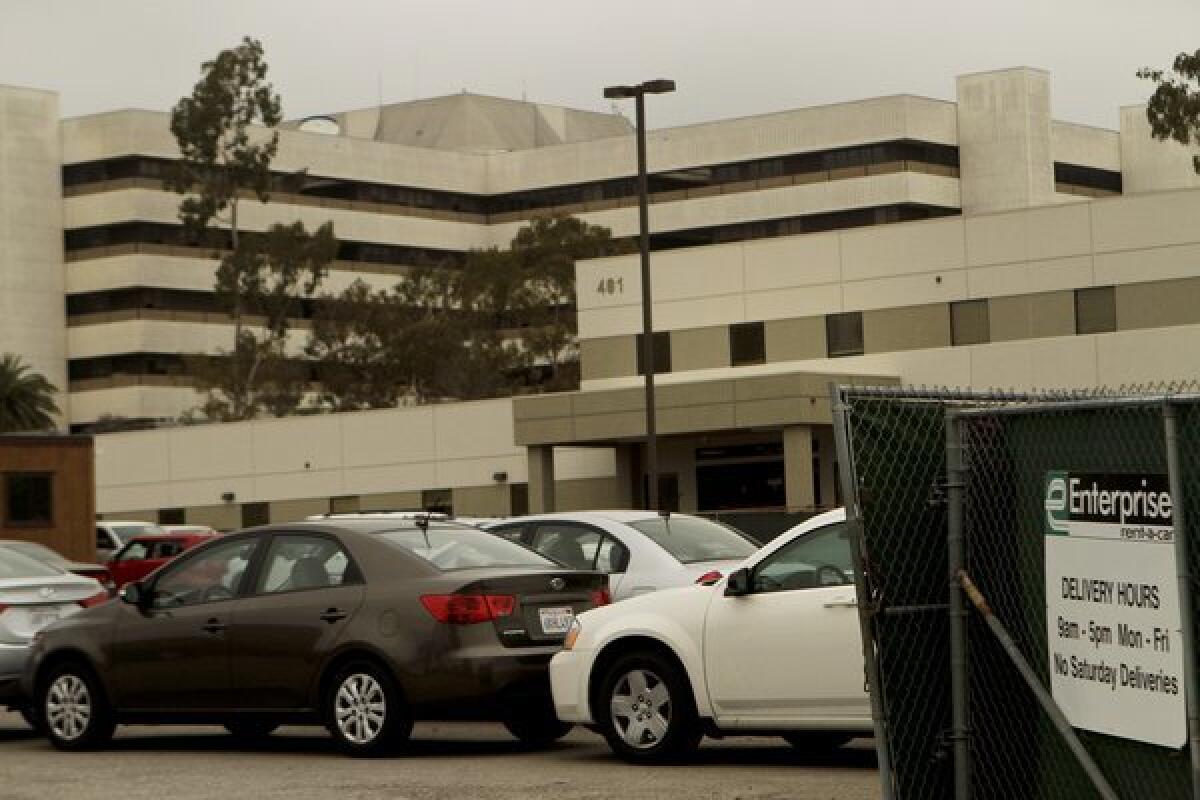A partial win for disabled vets in fight with West L.A. VA

- Share via
A federal judge’s ruling Thursday jeopardizes the Department of Veterans Affairs’ practice of generating revenue by leasing out unused space on its West Los Angeles acreage. It’s a win for veterans advocates and the American Civil Liberties Union, which brought the lawsuit, but it doesn’t force the department to do anything more for homeless and ailing veterans than it’s doing today.
It also raises a question about how the VA will replace the revenue it stands to lose.
The ACLU brought the lawsuit in 2011 on behalf of disabled veterans and the Vietnam Veterans of America, asking the court to throw out agreements the VA had made with a commercial laundry service, a TV studio, a soccer club and other entities to use about a third of the West Los Angeles grounds. It also sought to force the VA to provide permanent supportive housing there for the most severely disabled vets.
Thursday’s 21-page ruling by U.S. District Judge S. James Otero deals only with the land-use issue; the argument that the VA was obligated to provide housing for vets had previously been dismissed. And this time, Otero sided completely with the ACLU.
Federal law allows the department to share “healthcare resources” with other entities for the sake of strengthening its healthcare services for veterans. But the VA abused that authority, Otero wrote, by stretching the definition of “healthcare resource” to cover space on the West Los Angeles campus that wasn’t used for healthcare, such as parking lots and parks.
Federal law “cannot be reasonably read to permit [sharing arrangements] that do not relate to the provision of healthcare and serve no purpose other than to generate revenue” for the VA, Otero declared. Instead, he wrote, the legislative history shows that lawmakers wanted to expand the VA’s authority so it could hire contractors for landscaping, laundry and the like to help it provide healthcare to vets.
Otero declared void all of the sharing agreements challenged by the ACLU that were still active. But he put his ruling on hold for six months to give the agency time to appeal.
The disabled vets challenged the leases mainly to open up more space on the VA grounds to provide housing for their homeless and ailing counterparts. But because of Otero’s previous rulings in the case, the VA will be under no compulsion to deliver those services, even if his Thursday decision is upheld on appeal.
Nevertheless, Mark Rosenbaum, an attorney for the ACLU, saw the new ruling as an opportunity to obtain at least some of the relief that the disabled veterans sought. “This would be an opportune time to settle all the claims,” including the demand for permanent supportive housing, he said in an email. “I think this would be an especially good week to start that process.”
ALSO:
Martin Luther King Jr.’s real message
Monica Ratliff, the new teacher on board
Follow Jon Healey on Twitter @jcahealey and Google+
More to Read
A cure for the common opinion
Get thought-provoking perspectives with our weekly newsletter.
You may occasionally receive promotional content from the Los Angeles Times.







